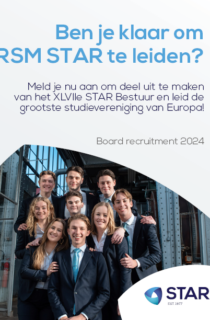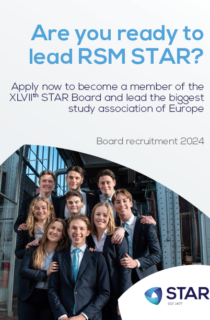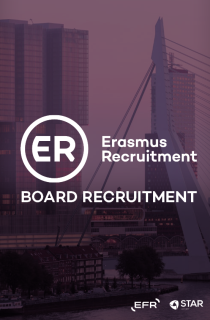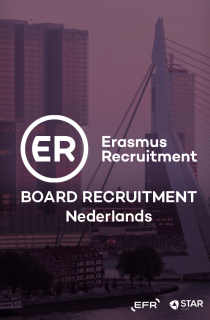RSM Dean Ansgar Richter about joining the STAR Board:
“Time spent at university as a student isn’t only for acquiring knowledge, or for specialising in your skills. And it’s not just for preparing for a job or for your career.
In fact, one of the fundamental goals of your academic education is so you can develop yourself personally. You will learn how to think critically, to take responsibility, and how you can become a force for positive change in the world. It might not be obvious to you right now, but in fact a lot of your personal development takes place outside of the classroom. Student life is where you can first try out your new self-awareness, your sense of responsibility, and your critical thinking among your peers.
This is why student associations are a vital part of your university life and your university education. There is lifelong benefit to making this part of your life while you are at university. If you have the opportunity to serve in one of the board positions in the STAR Association, then take it. You should seriously consider applying because I am convinced that it offers great opportunities.
With my best regards,
Ansgar Richter
Dean Rotterdam School of Management, Erasmus University”





